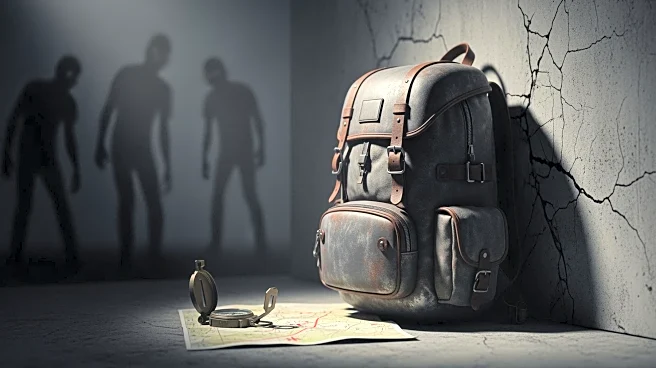What's Happening?
Slovakia's Prime Minister Robert Fico has announced that his country will not support any legal or financial schemes aimed at using frozen Russian assets to fund Ukraine's military expenses. This statement was made during an interview with Slovakian public
broadcaster STVR, as reported by Bloomberg. Fico's stance is consistent with his history of opposing European Union measures against Russia, often leveraging his position to negotiate concessions on other issues. The EU is currently working on a plan to utilize revenues from immobilized Russian assets to provide a €140 billion loan to Ukraine, without directly seizing the assets. This plan is considered crucial by the International Monetary Fund, which has expressed concerns about Ukraine's public finances and has made its aid contingent on EU support.
Why It's Important?
The opposition from Slovakia's Prime Minister could complicate EU efforts to financially support Ukraine amidst ongoing military conflicts. Slovakia's stance may influence other EU member states, potentially hindering the bloc's ability to present a unified front in its financial and political strategies regarding the Ukraine crisis. The EU's plan to use frozen Russian assets is seen as vital for stabilizing Ukraine's economy, which is under significant strain due to the conflict. If Slovakia's opposition leads to broader dissent within the EU, it could delay or derail financial aid plans, impacting Ukraine's ability to sustain its defense efforts and manage its economic challenges.
What's Next?
The EU will likely continue negotiations to secure consensus among member states on the use of frozen Russian assets. Slovakia's opposition may prompt further diplomatic discussions or adjustments to the proposed financial schemes to accommodate differing viewpoints within the EU. The outcome of these negotiations will be crucial in determining the level of financial support Ukraine can expect from the EU. Additionally, Slovakia's stance may influence other countries' positions, potentially leading to a reevaluation of strategies to address the financial implications of the Ukraine conflict.
Beyond the Headlines
Slovakia's resistance to using frozen Russian assets highlights the complex geopolitical dynamics within the EU, where individual member states can significantly impact collective decisions. This situation underscores the challenges of maintaining unity in foreign policy and financial strategies, especially when dealing with contentious issues like the Ukraine conflict. The ethical and legal implications of using frozen assets for military funding also raise questions about international norms and the balance between supporting allies and respecting sovereign rights.















